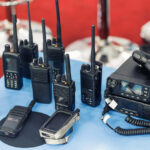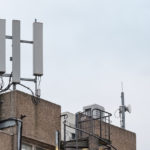Coverage is key. Managing people requires keeping them connected whether you plan events, own a building, or run a company. You can’t rely on cell towers alone if you’re in a crowded area or modern facility. If you’ve been looking into it and are unsure who needs distributed antenna systems (DAS), keep reading to learn more about their benefits.
Benefits of DAS
Frequencies from cell towers get weaker the farther away you get from them, and concrete and metal walls may also interfere with the signal. DAS is almost like having your own cell tower where you choose to install it. It boosts the cell signal to a specific location, so you won’t experience dropped calls.
Passive vs. Active DAS
Depending on the venue or size of your building, you may need a series of antennas or one big one. Typically, passive DAS is enough for spaces that are 100,000 square feet or less, while you’ll need active DAS for spaces larger than 500,000 square feet. It’s best to consult with professional distributed antenna system companies before making your decision.
Budgeting for DAS
Whether you’re upgrading your building or designing a new construction, include DAS in your budget. Active DAS tends to cost more per square foot than passive. Still, you should choose what’s best for your location.
Places That Need DAS
The two main causes of signal drops are building materials and capacity. All sorts of buildings, facilities, and venues can benefit from DAS to keep people connected. For instance, you might host an outdoor wedding during which people will want to livestream and upload photos. Other places that may need DAS include:
- Hospitals
- Office buildings
- Event spaces
- Schools
- Sports arenas
- Conference centers
- Hotels
Knowing who needs distributed antenna systems (DAS) may motivate you to invest. If you own the type of facility or other location that may benefit from an active or passive system, contact the professionals at Harris Communications to schedule an assessment today.







